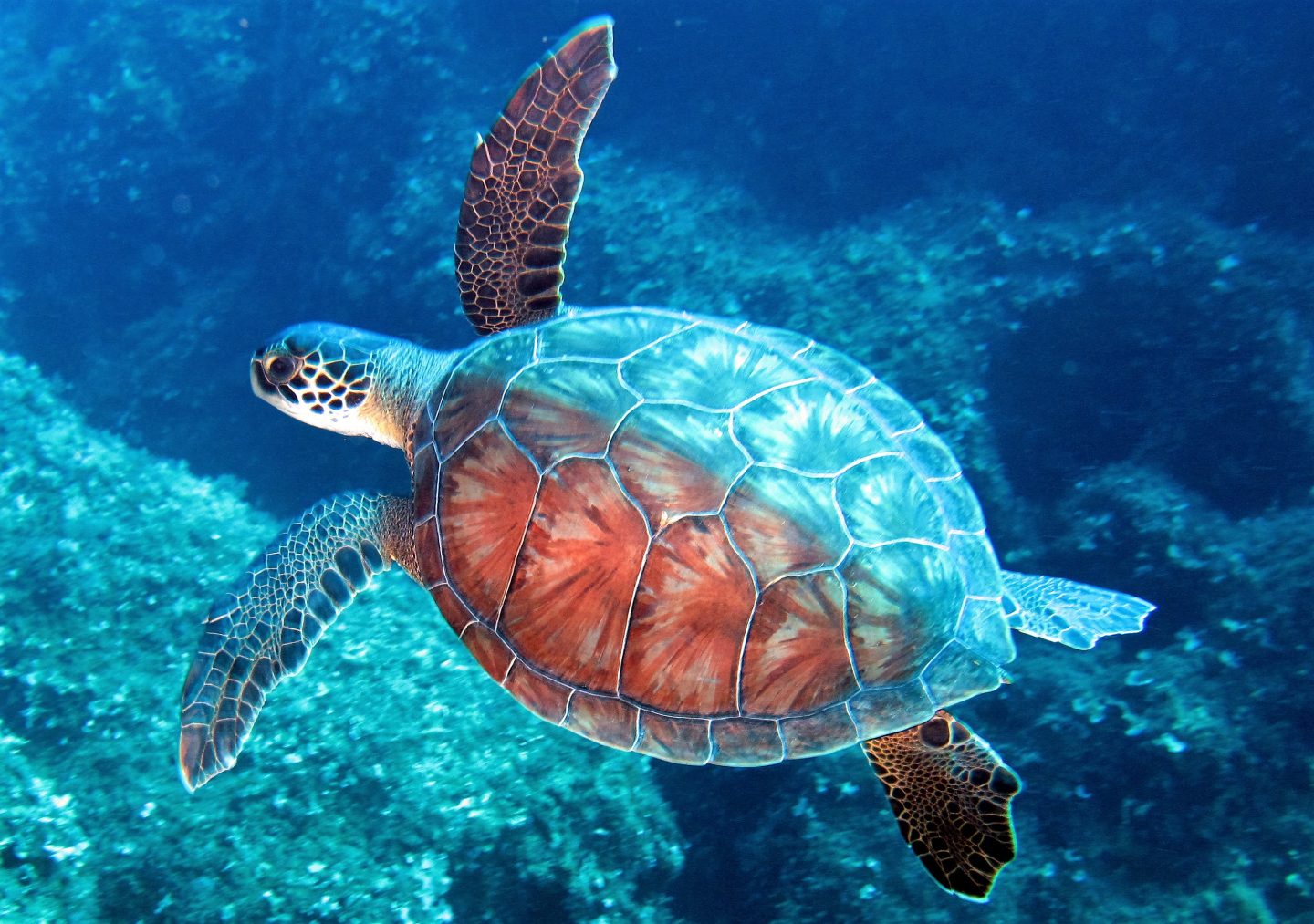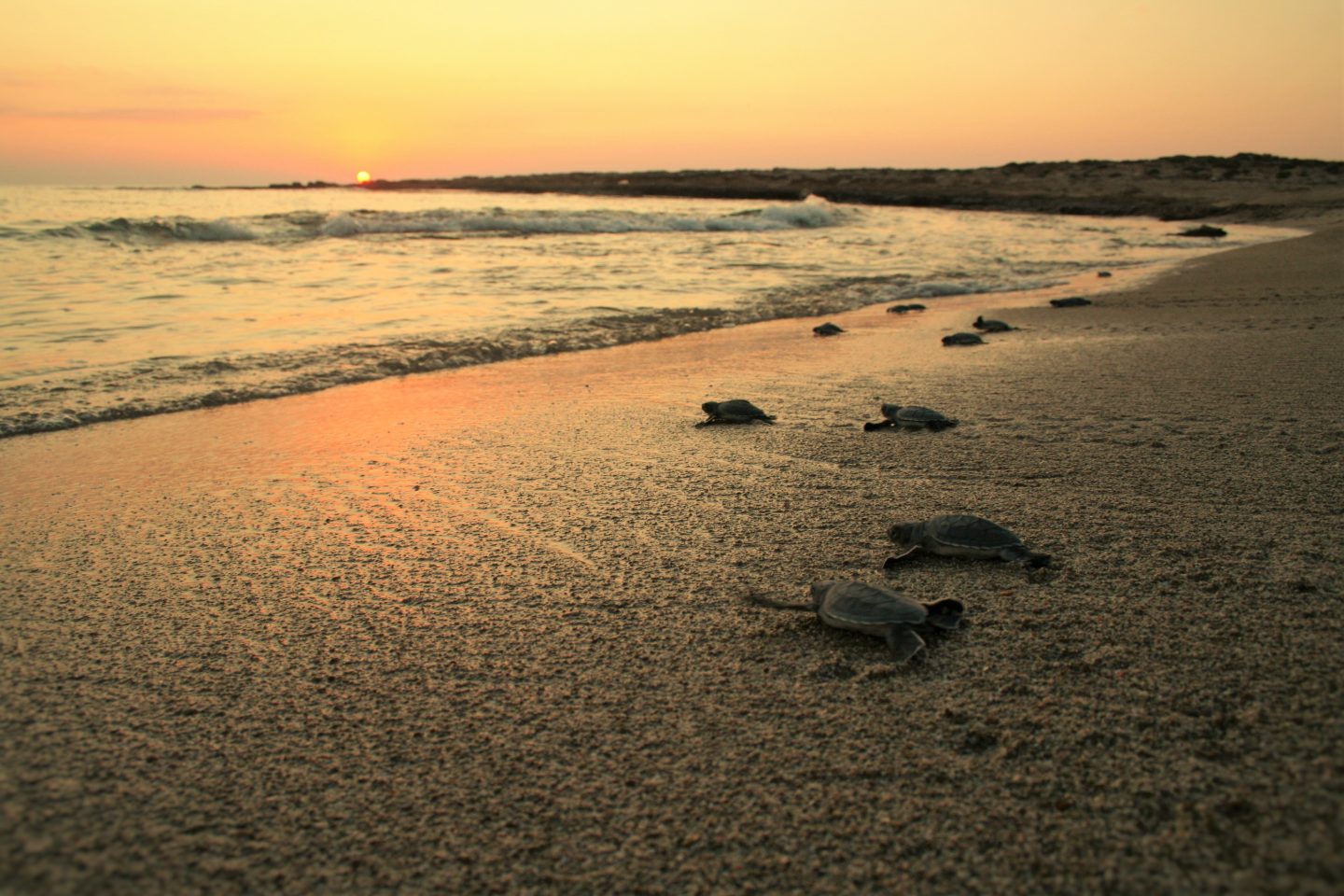The Marine Turtle Conservation Project (MTCP) has been at the forefront of the conservation of marine turtles in Northern Cyprus since 1992.
The project has been a flagship for both conservation and research and has resulted in the protection of nesting beaches, identification of important foraging areas, a greater understanding of the biology of turtles, and most importantly we have seen a rise in the number of turtles nesting in recent years.
Thanks to you, our supporters, the Marine Turtle Conservation Project in Northern Cyprus is going from strength to strength and the nesting populations we monitor are on the road to recovery. This long-term collaboration between University of Exeter and SPOT is growing and with further support, we strive to foster greater involvement of local communities in our positive actions.
why are we fundraising?
SPOT’s funded placements offer diverse young Cypriots an opportunity to work among our excellent overseas volunteers, including many University of Exeter students. In 2023 we supported 33 fully-funded Cypriot placements and plan to increase this in 2024. Local volunteers build life skills, appreciate global values, and broaden their horizons, while securing the future of their island’s natural heritage. Many of these young marine advocates return year on year and develop leadership roles. They are spreading the word in their communities and going on to great things. To encourage local participation, these placements are free. But running costs have risen dramatically in recent years so we are looking for your support to help us invest in Cypriot volunteers.
 Simge
(left) completed a funded placement in 2020. Her contribution was invaluable.
She built leadership skills on the nesting beach project and later took on a
paid position coordinating our fisheries bycatch research. Simge is now a
familiar face on University of Exeter’s Penryn Campus where she is completing the
Marine
Vertebrate Ecology and Conservation MSc.
Simge
(left) completed a funded placement in 2020. Her contribution was invaluable.
She built leadership skills on the nesting beach project and later took on a
paid position coordinating our fisheries bycatch research. Simge is now a
familiar face on University of Exeter’s Penryn Campus where she is completing the
Marine
Vertebrate Ecology and Conservation MSc.
 Emre
volunteered with SPOT in 2023 and in 2024 is completing a second placement. He
has been accepted to study for his undergraduate degree at Stanford University.
Emre
volunteered with SPOT in 2023 and in 2024 is completing a second placement. He
has been accepted to study for his undergraduate degree at Stanford University.
As the number of nesting turtles increases, more young green turtles are showing up in the sea around Cyprus to make its lush seagrass meadows their home. Our studies have shown that as adults they forage at a small number of sites in Africa, while in Northern Cyprus, many meet an early end in fishing nets and never make it to the nesting beach as adults.
 Juvenile
green turtles caught in fishing nets await necropsy at SPOT’s wet lab.
Carcasses provide opportunity for necropsy and diet analysis and the published
research of University of Exeter students hosted in Cyprus, continues to
highlight the chronic ingestion of marine plastics (insert) which is also
affecting sea turtles. The wide
media coverage of these shocking results helps us to draw attention
to the marine plastic crisis and can influence global policy. We need your
support to do this.
Juvenile
green turtles caught in fishing nets await necropsy at SPOT’s wet lab.
Carcasses provide opportunity for necropsy and diet analysis and the published
research of University of Exeter students hosted in Cyprus, continues to
highlight the chronic ingestion of marine plastics (insert) which is also
affecting sea turtles. The wide
media coverage of these shocking results helps us to draw attention
to the marine plastic crisis and can influence global policy. We need your
support to do this.
By placing observers on fishing boats, SPOT are developing an evidence base for conservation and we now know that tens of thousands of protected turtles, sharks and rays are accidentally killed each year in the fleet we monitor in Cyprus. In 2022, we were able to inform policy and in May 2023 new legislation was announced with many benefits for sea turtles. These include a ban on the use of set nets by recreational fishers and the first No-Take-Zones within which, all forms of fishing are to be banned.
 Fishers
in SPOT’s network receive training and advice from our observers on how to
handle and release turtles safely and we link them with a local sea turtle
rehabilitation centre. Fishers also receive NetLights
which can reduce their bycatch. This work was recently covered by BBC World Service.
Fishers
in SPOT’s network receive training and advice from our observers on how to
handle and release turtles safely and we link them with a local sea turtle
rehabilitation centre. Fishers also receive NetLights
which can reduce their bycatch. This work was recently covered by BBC World Service.
 University
of Exeter MSc graduate Martha
Okeefe’s published results, present the first assessment of bycatch
of protected sharks and rays in Northern Cyprus and contributed to recent
policy reform, banning their trade. By interacting with fishers closely on
their boats, onboard observers like Martha raise their awareness of
conservation issues and train them in best handling and release practices for
endangered species.
University
of Exeter MSc graduate Martha
Okeefe’s published results, present the first assessment of bycatch
of protected sharks and rays in Northern Cyprus and contributed to recent
policy reform, banning their trade. By interacting with fishers closely on
their boats, onboard observers like Martha raise their awareness of
conservation issues and train them in best handling and release practices for
endangered species.
With your support, we want to do more of this.
In 2024 and 2025, as well as support for continued nesting beach work, we are looking for your help to further engage local communities in our programmes. Your support will help us to increase the number of Cypriot volunteers, further build collaboration with fisheries stakeholders, to continue to monitor and report on bycatch, to raise awareness about these important issues and to advocate for the strict enforcement of new policy measures, especially at Alagadi where a pilot No-Take Zone will be established with dedicated monitoring of illegal fishing.
Would you support us with a regular gift?
We need to ensure a regular income for this project and require significant funds to pay for staff costs, equipment, fuel, vehicles and food. Thanks to the generosity of alumnus Roger de Freitas (Politics, 1971), all your contributions are being matched! This means that your donations to the current crowdfunding campaign will be worth double their value to the turtles.
Any size of donation would help, however regular gifts build a sustainable stream of income, allowing us to plan for the future, protect and grow our invaluable conservation work.
We are hoping that some of you might consider becoming regular donors to secure the project in the longer term so that we are less reliant on income from ecotourism and are able to build the capacity of our Cypriot volunteers.
Over the course of a year:
- £5 per month would cover the fuel costs for one day of beach monitoring
- £10 per month would enable us to buy cages to protect ten nests or support a local volunteer through a one-week placement.
Those of you who have volunteered or visited the project over the years will know how amazing and important this work is for them.
All gifts, of all sizes are appreciated and we would be incredibly grateful for whatever you feel you could give.
thank you!
The Marine Turtle Conservation Project (MTCP) is a collaboration between the Society for the Protection of Turtles (SPOT), the University of Exeter and the Department for Environmental Protection.

